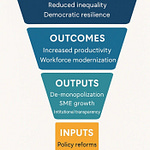The Court of Appeal’s decision is a critical moment for Malaysia's judiciary, reflecting a robust mechanism for reviewing decisions in sensitive and politically charged cases.
For the people, it underscores the potential for justice but also risks exacerbating societal divisions.
For the Unity Government, this development serves as both a challenge and an opportunity to strengthen its narrative on accountability, transparency, and governance.
Selective REFERENCES
Judiciary and Rule of Law
1. Razak, N. (2024). Court of Appeal Judgement on Judicial Review Leave. Case Number: WA-25-136-04/2024.
This document provides the legal basis for reversing the earlier decision and ordering a substantive hearing.
2. Shklar, J. N. (1964). Legalism: Law, Morals, and Political Trials. Cambridge, MA: Harvard University Press.
Highlights the role of procedural justice in fostering trust in legal systems, especially in politically charged cases.
3. Harding, A. (2012). The Constitution of Malaysia: A Contextual Analysis. Oxford: Hart Publishing.
Offers insights into the Malaysian legal framework, emphasizing the separation of powers and judicial independence.
---
Governance and Political Implications
4. Means, G. P. (1996). Malaysian Politics: The Second Generation. Oxford University Press.
Discusses the political dynamics in Malaysia, including how high-profile cases influence governance and public trust.
5. Weiss, M. L. (2006). Protests and Possibilities: Civil Society and Coalitions for Political Change in Malaysia. Stanford: Stanford University Press.
Analyzes the role of civil society in demanding accountability from political elites.
---
Anti-Corruption and Public Accountability
6. Transparency International Malaysia. (2023). Global Corruption Perceptions Index.
Provides context on public perception of corruption and its implications for governance and institutional trust in Malaysia.
7. Brown, D. (2005). Corruption and Accountability in Malaysia's Judiciary. Journal of Contemporary Asia, 35(3), 341-359.
Evaluates past instances of judicial corruption and their impact on public confidence.
---
Social and Economic Impacts
8. Gomez, E. T., & Jomo, K. S. (1999). Malaysia’s Political Economy: Politics, Patronage and Profits. Cambridge University Press.
Examines the nexus between political elites and economic power, relevant to Najib's case.
9. Foster, J. B., & McChesney, R. W. (2014). The Endless Crisis: How Monopoly-Finance Capital Produces Stagnation and Upheaval. Monthly Review Press.
Explores broader implications of elite accountability on governance in the context of global capitalism.
Thank you for reading our postings and presentations
with solidarity,
To support our research-writings, and visualisations in













